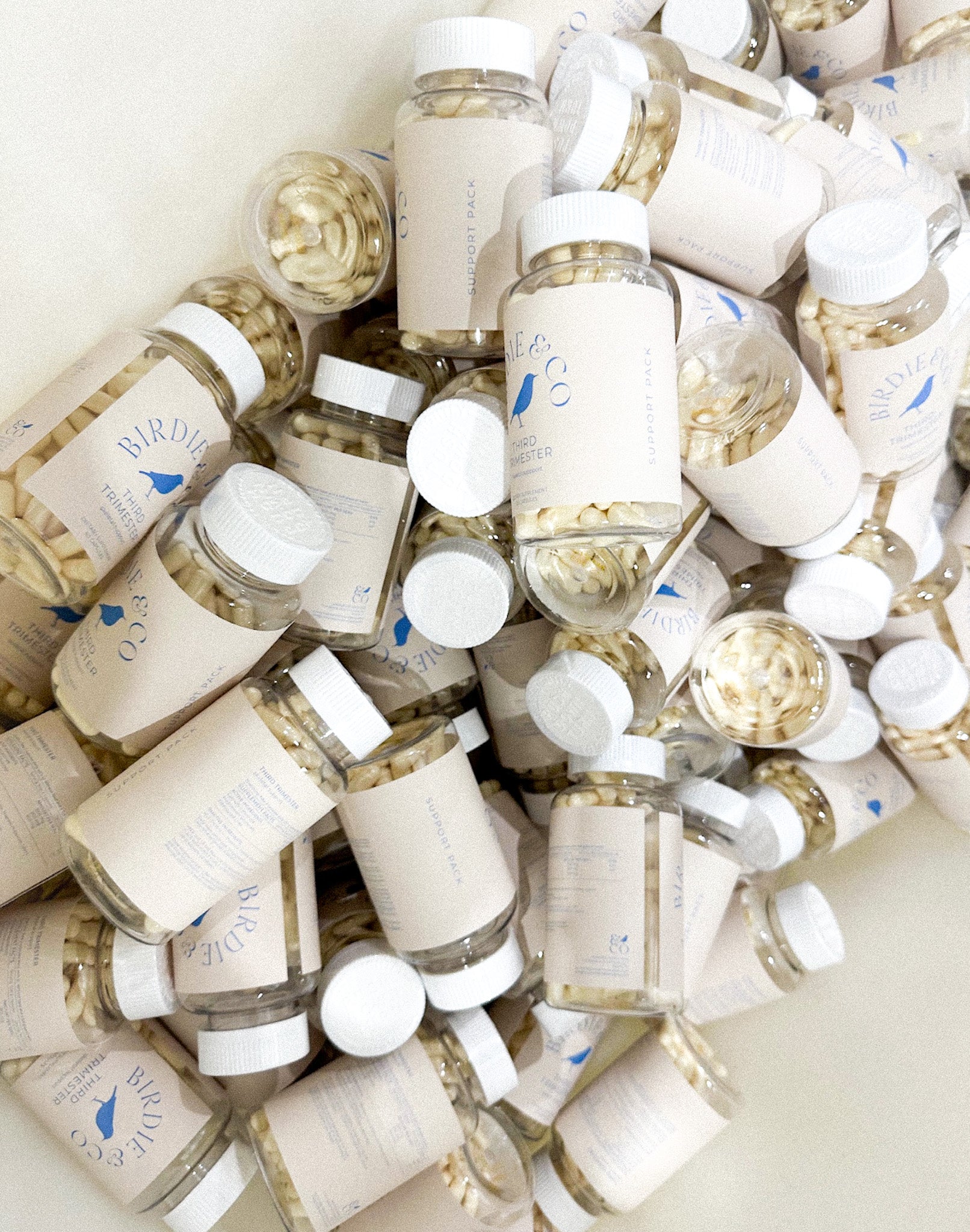Gestational diabetes is a common concern during pregnancy, affecting up to 10% of expectant mothers. Managing blood sugar levels is crucial for both the mother's and baby's health. Recent research has shed light on the role prenatal supplements can play in this management. At Birdie & Co., we're dedicated to providing holistic wellness advice, so let's explore how prenatal supplements can support women with gestational diabetes.
What is Gestational Diabetes?
Gestational diabetes mellitus (GDM) is a type of diabetes that develops during pregnancy. It occurs when the body can't produce enough insulin to regulate blood sugar levels effectively. While it usually resolves after childbirth, GDM can increase the risk of developing type 2 diabetes later in life for both the mother and the child.
The Importance of Prenatal Supplements
Prenatal supplements are designed to fill nutritional gaps and support the health of both mother and baby. They typically contain a blend of essential vitamins and minerals, such as folic acid, iron, calcium, and DHA. Recent studies have highlighted the potential benefits of specific nutrients in managing gestational diabetes.
Key Nutrients for Gestational Diabetes Management
-
Folate: Folate is crucial for fetal development and can reduce the risk of neural tube defects. Some studies suggest that adequate folate intake may also help improve insulin sensitivity, which is beneficial for managing gestational diabetes .
-
Vitamin D: Vitamin D deficiency has been linked to an increased risk of gestational diabetes. Supplementing with vitamin D can improve insulin sensitivity and glucose metabolism, helping to maintain healthy blood sugar levels during pregnancy .
-
Magnesium: Magnesium plays a vital role in glucose metabolism and insulin action. Research indicates that magnesium supplementation can improve insulin sensitivity and reduce the risk of gestational diabetes .
-
Omega-3 fatty acids: Omega-3 fatty acids, particularly DHA, are important for fetal brain development. They also have anti-inflammatory properties that can help regulate blood sugar levels and reduce the risk of insulin resistance .
-
Probiotics: Emerging research suggests that gut health plays a significant role in metabolic health. Probiotics can improve gut microbiota composition, potentially lowering the risk of gestational diabetes by enhancing insulin sensitivity .
Recent Research Highlights
-
A 2023 study published in the Journal of Maternal-Fetal & Neonatal Medicine found that pregnant women who took a prenatal supplement containing folic acid, vitamin D, and omega-3 fatty acids had a significantly lower risk of developing gestational diabetes compared to those who did not supplement .
-
Another study from 2022 in the Nutrients journal highlighted the benefits of magnesium supplementation in pregnant women, showing improved insulin sensitivity and lower blood sugar levels in the group that received magnesium supplements .
-
A 2023 randomized controlled trial published in Diabetes Care demonstrated that probiotics could positively affect glucose metabolism in pregnant women, suggesting a potential role for probiotics in managing gestational diabetes .
Practical Tips for Expectant Mothers
- Consult with your healthcare provider: Before starting any supplement regimen, discuss your specific needs and risks with your healthcare provider to ensure the supplements are appropriate for you.
- Choose high-quality supplements: Opt for prenatal vitamins that contain the key nutrients mentioned above. Look for third-party certifications to ensure the quality and purity of the supplements.
- Adopt a balanced diet: Supplements are meant to complement, not replace, a healthy diet. Focus on a balanced diet rich in whole foods, including plenty of fruits, vegetables, lean proteins, and whole grains.
- Monitor blood sugar levels: Regular monitoring of blood sugar levels is crucial for managing gestational diabetes. Work with your healthcare provider to develop a monitoring schedule and understand your target ranges.
- Stay active: Regular physical activity can help regulate blood sugar levels. Aim for moderate exercise, such as walking, swimming, or prenatal yoga, most days of the week.
Managing gestational diabetes can be challenging, but with the right support and resources, it's entirely possible to have a healthy pregnancy. Prenatal supplements play a valuable role in supporting maternal and fetal health, particularly for those at risk of or managing gestational diabetes. By incorporating the right nutrients and staying informed about the latest research, expectant mothers can take proactive steps towards a healthy pregnancy.



